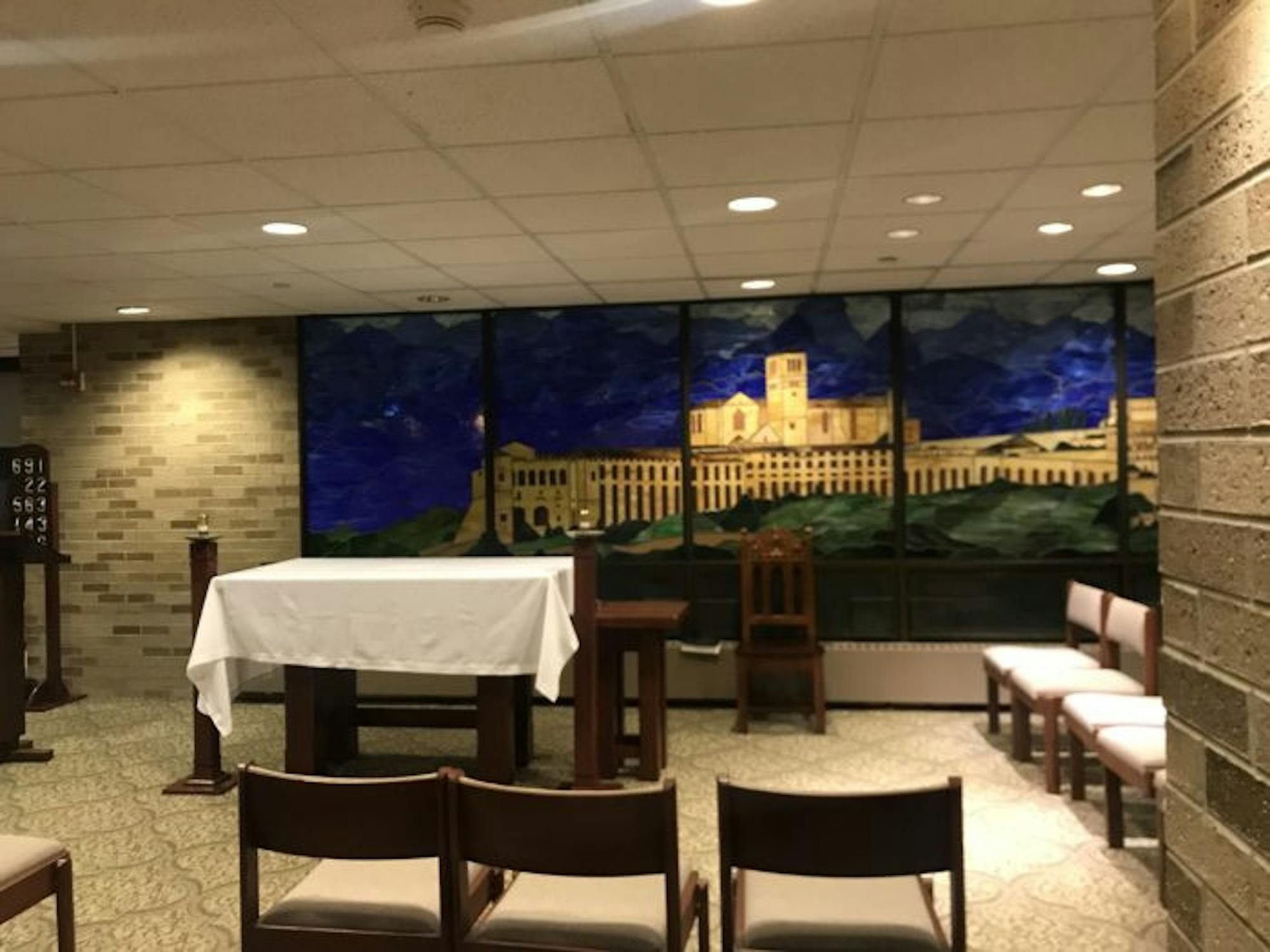From coordinating liturgies to administering the Eucharist to preaching at the end of mass, women in residence hall masses across campus are serving in liturgical leadership positions.
Last semester, Jenny Wiertel, an assistant rector in Pasquerilla West Hall and second-year Master of Divinity student, began taking preaching courses as a part of her degree. This sparked Wiertel to first start preaching — offering reflections on the readings — at the end of Pasquerilla West’s masses. She plans to continue preaching about once a month.
Wiertel said she finds that preaching fills her with humility and gratitude.
“It’s very humbling to preach,” Wiertel said. “I’m very grateful that my community trusts me to facilitate a deeper encounter with the Word [of God].”
Wiertel has received a lot of positive reactions to her reflections from her residents, she said. She added that they have told her that she has helped them see how the readings relate to their lives.
Julia King, an assistant rector in Ryan Hall and second-year Master of Divinity student, also preaches at the end of mass.
King said she felt confirmed in her vocation the first time she preached.
“I was able to speak into the lives of my residents as a young woman in a similar state of life,” she said.
Some of King’s residents even went to hear her preach in her class because they were excited to hear her reflections on the Word of God, she added.
Mary Catherine Hilkert, a Notre Dame professor of systematic theology, said there is abundant evidence of women’s gifts for preaching in the Scriptures. Women such as Mary Magdalene, in addition to other historical figures such as Catherine of Siena and Hildegard of Bingen all took on preacher-like roles.
Because Wiertel and King are both assistant rectors for spiritual life in their respective halls, they are tasked with coordinating liturgies for their dorm masses.
Coordinating liturgy consists of training lectors, Eucharistic Ministers, sacristans and music ministers, as well as ensuring that all roles are filled for each mass.
“I really see my role as an AR (assistant rector) as supporting and empowering the residents to take on leadership roles for themselves,” Wiertel said.
In 2016, Pope Francis launched the Study Commission on the Women’s Diaconate. The commission studies the theology and history of female deacons.
“This is a live question, the question of women in the diaconate in our church, and so I’m excited to see where the spirit leaves us with that,” Wiertel said.
University spokesperson Dennis Brown said the University will be attentive to the commission’s findings.
“We look forward to whatever action the Pope may take after the Commission concludes its work,” Brown said in an email.
The Sixteenth Ordinary General Assembly of the Synod of Bishops, commonly called the “synod on synodality,” is planned to take place in October 2023. Synodality is commonly understood as a process in which various members and leaders of the Church come together to discern particular issues.
The Vatican released a preparatory handbook for the 2023 synod, which suggests discussion of how women and young people are listened to in the Church.
King said Pope Francis, alongside the bishops, seek to listen to the faithful at the upcoming synod.
“Together, we can discern the ways in which the Holy Spirit is moving in the Church, and I think this includes discerning leadership roles where women can use their gifts to carry out the Church’s mission,” King said.
Wiertel said she feels her calling is to empower women to lead in spiritual life.
“I hope we can continue to invite women into leadership roles,” she said. “I think they go unnoticed a lot of times, so I hope we can just continue to recognize and appreciate what women are doing.”
Editor’s Note: A previous version of this story incorrectly stated that Catherine of Siena and Hildegard of Bingen are in the Scriptures. The Observer regrets this error.
Women take on liturgical leadership roles within residence halls
The chapel in Pasquerilla West Hall, where assistant rector Jenny Wiertel preaches about once a month.
The chapel in Pasquerilla West Hall, where assistant rector Jenny Wiertel preaches about once a month.









